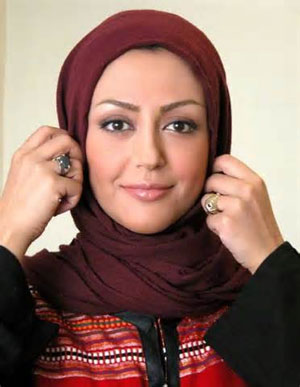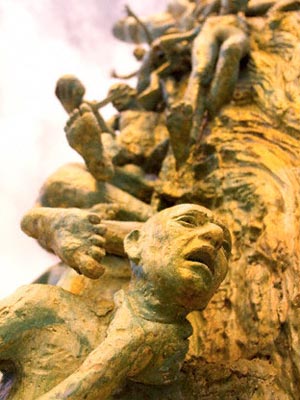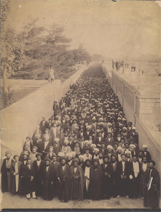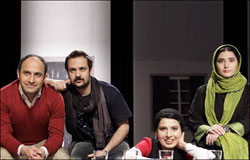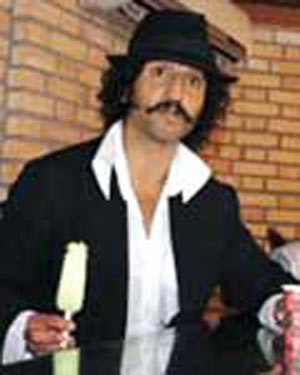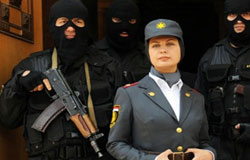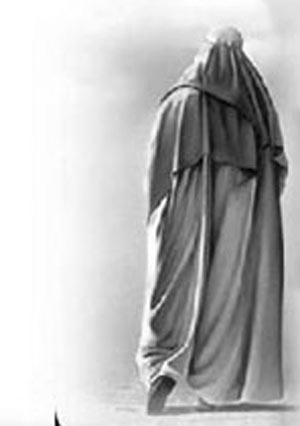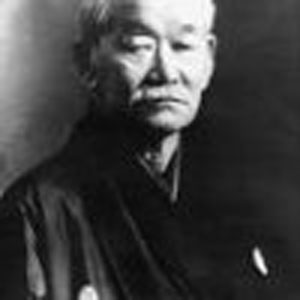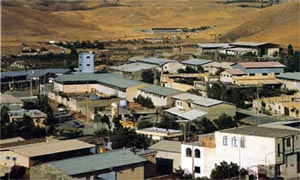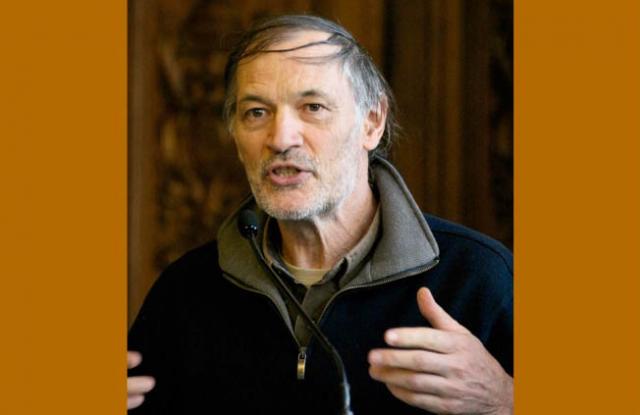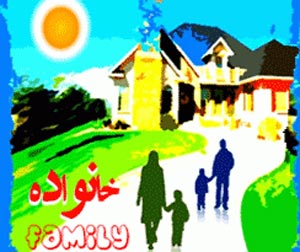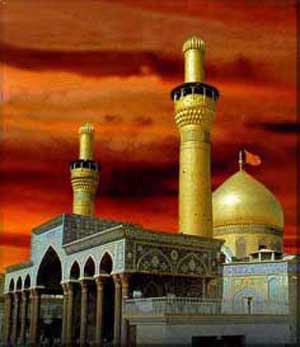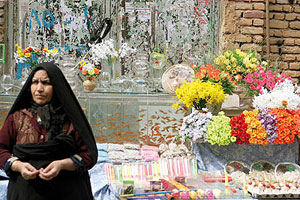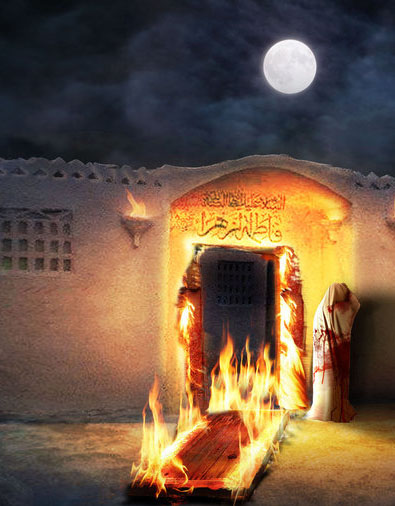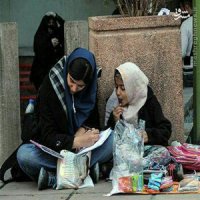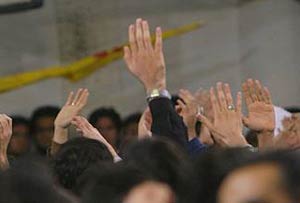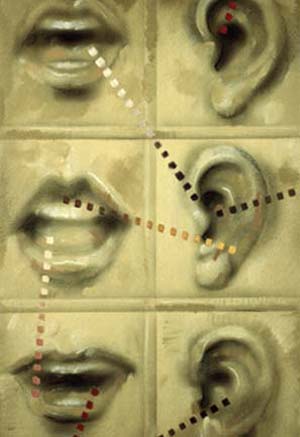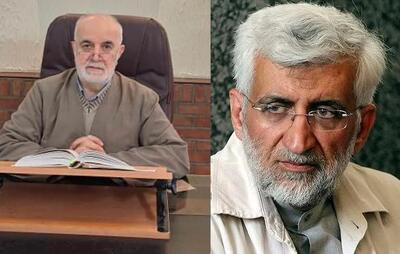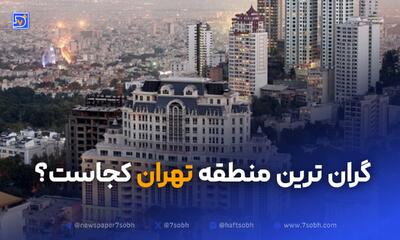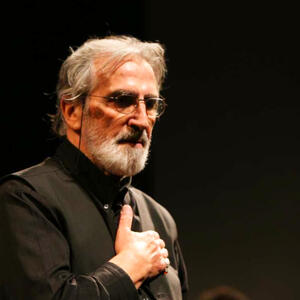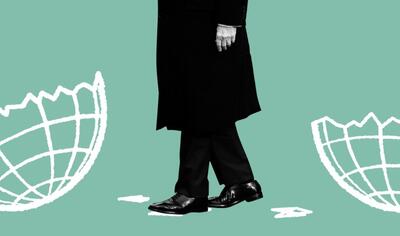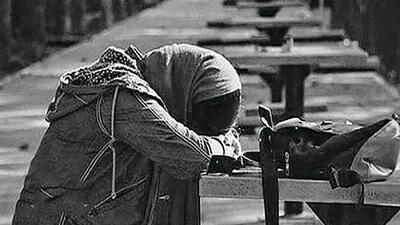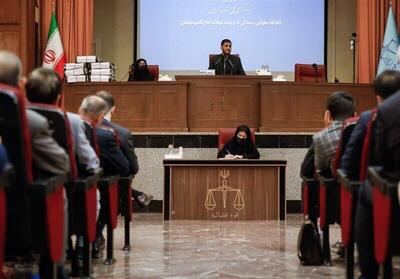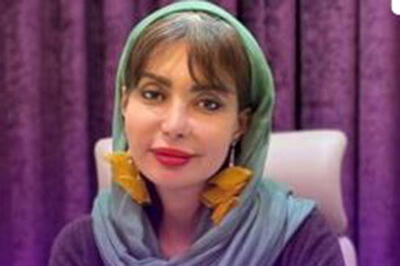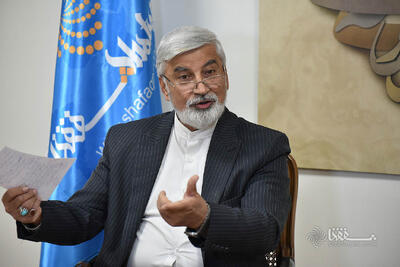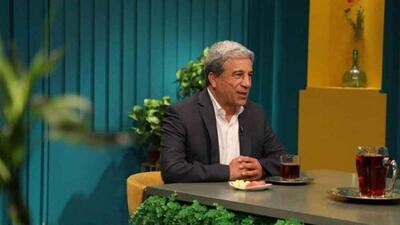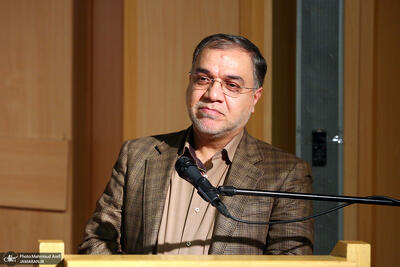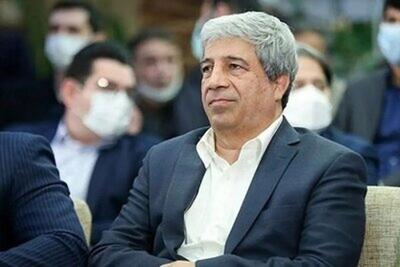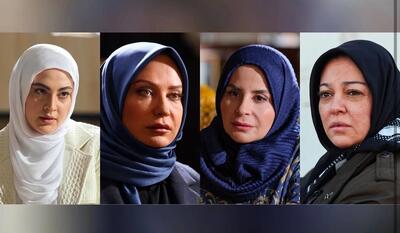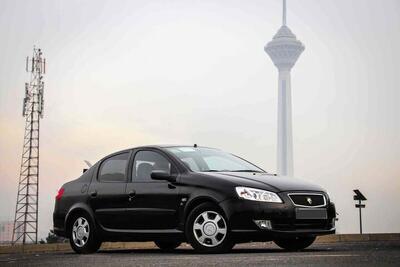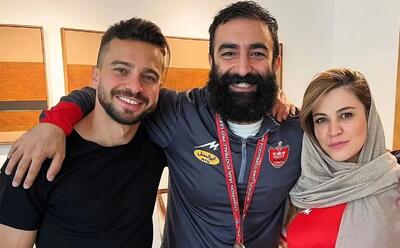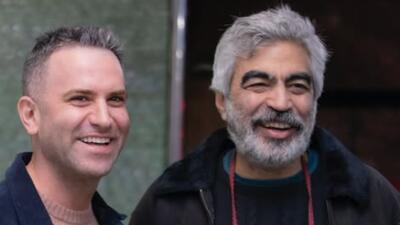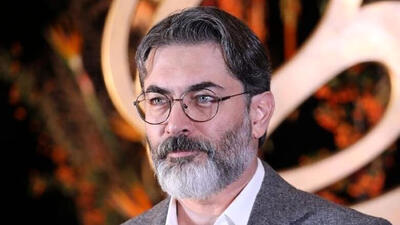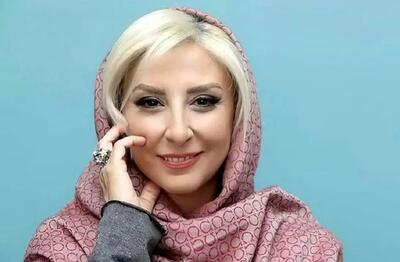چهارشنبه, ۲۶ دی, ۱۴۰۳ / 15 January, 2025
مجله ویستا
کارگاه ترجمه ایتالیایی(1): امبرتو اکو: جنگ های مقدس، شور و عقلانیت
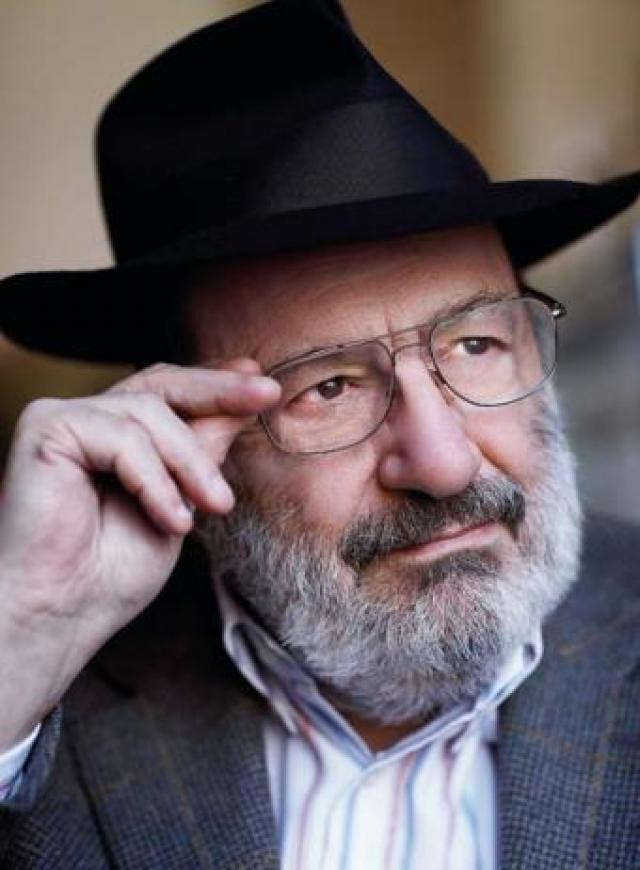
گروه بین المللی و ترجمه
مقاله زیر از اومبرتو اکو نویسنده مشهور ایتالیایی و متخصص نشانه شناسی است. برای تمرین زبان ایتالیایی تلاش کنید این مقاله را به صورت بخش های کوچک ترجمه کنید و سپس ترجمه خود را با متن انگلیسی ترجمه مقایسه نمائید.
Le guerre sante, passione e ragione
pensieri sparsi sulla superiorità delle culture
articolo/saggio di
UMBERTO ECO
Great Italian Writers
Holy Wars, Passion and Reason
random thoughts upon the superiority of cultures
an article/essay by
UMBERTO ECO
Translated by: Ercole Guidi
Umberto Eco è ordinario di Semiotica all'Università di Bologna e presidente del Centro Internazionale di Studi Semiotici e Cognitivi dell'Università di San Marino. Tra i suoi romanzi Il nome della rosa, Il pendolo di Focault e il suo più recente, Baudolino
Umberto Eco is professor of Semiotics at the University of Bologna, Italy, and the president of the Centre for Semiotic and Cognitive International Studies at the University of San Marino. Among his novels, The Name of the Rose, The Focault Pendulum and his latest, Baudolino.
Che qualcuno abbia, nei giorni scorsi, pronunciato parole inopportune sulla superiorità della cultura occidentale, sarebbe un fatto secondario. E' secondario che qualcuno dica una cosa che ritiene giusta ma nel momento sbagliato, ed è secondario che qualcuno creda a una cosa ingiusta o comunque sbagliata, perché il mondo è pieno di gente che crede a cose ingiuste e sbagliate, persino un signore che si chiama Bin Laden, che forse è più ricco del nostro presidente del Consiglio e ha studiato in migliori università.
It would be of no moment that someone, in the past few days, had been voicing unseemly assertions as to the superiority of the Western culture. It is of no moment that someone pick the wrong time to say something which he holds to be right; and it is of no moment that someone believe in something unjust, or however wrong, for the world is crawling with people who believe in unjust and awry things; even a gentleman by the name of Bin Laden, who is possibly wealthier than our Prime Minister and has attended better universities.
Quello che non è secondario, e che deve preoccupare un poco tutti, politici, leader religiosi, educatori, è che certe espressioni, o addirittura interi e appassionati articoli che in qualche modo le hanno legittimate, diventino materia di discussione generale, occupino la mente dei giovani, e magari li inducano a conclusioni passionali dettate dall'emozione del momento.
What is not inconsequential, and should concern politicians, religious leaders, and educators, is that certain expressions, or even whole and heated articles which have come to legitimize them, become the object of general discussion, capture the mind of our children and possibly lead them to wild conclusions dictated by the excitement of the moment.
Mi preoccupo dei giovani perché tanto, ai vecchi, la testa non la si cambia più.
My concern goes out to our children, as I know no way of getting through to old timers anyway.
Tutte le guerre di religione che hanno insanguinato il mondo per secoli sono nate da adesioni passionali a contrapposizioni semplicistiche, come Noi e gli Altri, buoni e cattivi, bianchi e neri.
All the wars of religion that for centuries have been drenching the world with blood have been born of passionate adherence to simplistic juxtapositions, such as Us and the Others, good and bad, white and blacks.
Se la cultura occidentale si è dimostrata feconda (non solo dall'Illuminismo a oggi ma anche prima, quando il francescano Ruggero Bacone invitava a imparare le lingue perché abbiamo qualcosa da apprendere anche dagli infedeli) è anche perché si è sforzata di «sciogliere», alla luce dell'indagine e dello spirito critico, le semplificazioni dannose.
If the Western culture has proven fecund (not only from the Enlightenment onward but even before, when the Franciscan Roger Bacon used to urge language learning for there is something to be learned from the infidels, too) it is also because it has endeavored to «dissolve» harmful exemplifications through inquiry and the critical mind.
Naturalmente non lo ha fatto sempre, perché fanno parte della storia della cultura occidentale anche Hitler, che bruciava i libri, condannava l' arte «degenerata», uccideva gli appartenenti alle razze «inferiori», o il fascismo che mi insegnava a scuola a recitare «Dio stramaledica gli inglesi» perché erano «il popolo dei cinque pasti» e dunque dei ghiottoni inferiori all'italiano parco e spartano.
Of course it hasn't always succeeded. Hitler, who torched the books, condemned «degenerate» art, and killed those who belonged to «inferior» races; or the fascism that taught me at school to recite «May God curse the English», for they were the «people of the five meals» and thus gluttons inferior to the thrifty and Spartan Italian, are also part of the history of Western culture.
Ma sono gli aspetti migliori della nostra cultura quelli che dobbiamo discutere coi giovani, e di ogni colore, se non vogliamo che crollino nuove torri anche nei giorni che essi vivranno dopo di noi.
But it is the better aspects of our culture which we should discuss with our children, and of every color, if we are to prevent new towers from falling asunder even long after we are gone.
Un elemento di confusione è che spesso non si riesce a cogliere la differenza tra l'identificazione con le proprie radici, il capire chi ha altre radici e il giudicare ciò che è bene o male.
One element of confusion is that we often fail to grasp the difference between identifying with one's own roots, understanding those with other roots and judging what is good or bad.
Quanto a radici, se mi chiedessero se preferirei passare gli anni della pensione in un paesino del Monferrato, nella maestosa cornice del parco nazionale dell'Abruzzo o nelle dolci colline del senese, sceglierei il Monferrato. Ma ciò non comporta che giudichi altre regioni italiane inferiori al Piemonte.
As for the roots, if I were asked whether I'd rather spend my leisure years in a little village of the Monferrato region, in the majestic setting of the Abruzzo National Park, or on the rolling hills of Chianti, the Monferrato would be my pick. Yet this does not imply that I deem other Italian regions any inferior to Piedmont.
Quindi se, con le sue parole (pronunciate per gli occidentali ma cancellate per gli arabi), il presidente del Consiglio voleva dire che preferisce vivere ad Arcore piuttosto che a Kabul, e farsi curare in un ospedale milanese piuttosto che in uno di Bagdad, sarei pronto a sottoscrivere la sua opinione (Arcore a parte). E questo anche se mi dicessero che a Bagdad hanno istituito l'ospedale più attrezzato del mondo: a Milano mi troverei più a casa mia, e questo influirebbe anche sulle mie capacità di ripresa.
So if, with his words (see note) (uttered for the Westerners but erased for the Arabs), our Prime Minister intended to say that he would rather live in Arcore than in Kabul, and seek medical care in a Milanese hospital than a Baghdad's, I would be ready to endorse his opinion (except for Arcore). And that even if they told me that Baghdad is now host to the world's most sophisticated medical facilities: in Milan I'd feel more at home, and that would likely boost my recovery.
Le radici possono essere anche più ampie di quelle regionali o nazionali. Preferirei vivere a Limoges, tanto per dire, che a Mosca. Ma come, Mosca non è una città bellissima? Certamente, ma a Limoges capirei la lingua.
Roots may also reach far beyond regional or national boundaries. I'd rather live in Limoges, for example, than in Moscow. But isn't Moscow a beautiful city? It certainly is, but in Limoges I'd understand the language.
Insomma, ciascuno si identifica con la cultura in cui è cresciuto e i casi di trapianto radicale, che pure ci sono, sono una minoranza. Lawrence d'Arabia si vestiva addirittura come gli arabi, ma alla fine è tornato a casa propria.
To sum it up: everyone identifies with the culture of his own upbringing, and the cases of radical transplant, while they occur, are in the minority. Lawrence of Arabia went as far as dress as an Arab, yet home was his final port of call.
* * *
Passiamo ora al confronto di civiltà, perché è questo il punto. L'Occidente, sia pure e spesso per ragioni di espansione economica, è stato curioso delle altre civiltà. Molte volte le ha liquidate con disprezzo: i greci chiamavano barbari, e cioè balbuzienti, coloro che non parlavano la loro lingua e dunque era come se non parlassero affatto.
* * *
Let us now move on to the comparison of civilizations, for that is the heart of the issue. The West, while often for reasons of economical expansion, has been curious about other civilizations. Many times it dismissed them with contempt: the Greeks called barbarians, that is stammerers, those who did not speak their language and therefore it was as if they did not speak at all.
Ma dei greci più maturi come gli stoici (forse perché alcuni di loro erano di origine fenicia) hanno ben presto avvertito che i barbari usavano parole diverse da quelle greche, ma si riferivano agli stessi pensieri.
But some more mature Greeks, like the Stoics (perhaps because some of them were of Phoenician descent), soon perceived that the barbarians were using words other than Greeks', but were referring to the same thoughts.
Marco Polo ha cercato di descrivere con grande rispetto usi e costumi cinesi, i grandi maestri della teologia cristiana medievale cercavano di farsi tradurre i testi dei filosofi, medici e astrologi arabi, gli uomini del Rinascimento hanno persino esagerato nel loro tentativo di ricuperare perdute saggezze orientali, dai Caldei agli Egizi, Montesquieu ha cercato di capire come un persiano potesse vedere i francesi, e antropologi moderni hanno condotto i loro primi studi sui rapporti dei salesiani, che andavano sì presso i Bororo per convertirli, se possibile, ma anche per capire quale fosse il loro modo di pensare e di vivere - forse memori del fatto che missionari di alcuni secoli prima non erano riusciti a capire le civiltà amerindie e ne avevano incoraggiato lo sterminio.
Marco Polo attempted to describe Chinese customs with great respect; the great masters of medieval Christian theology strived to get the texts of Arab philosophers, doctors, and astrologists, translated; the men of the Renaissance went out of their way in their endeavor to retrieve lost Oriental wisdoms, from the Caldeans to the Egyptians; Montesquieu tried to conceive how a Persian would regard the Frenchman, and modern anthropologists pursued their early studies on the accounts of the Salesians, who went, to be sure, among the Bororos to convert them, if possible, but also to acquaint themselves with their way of thinking and living - perhaps mindful of the fact that centuries earlier, other missionaries had failed to understand the Amerindian civilizations, hence encouraging their extermination.
Ho nominato gli antropologi. Non dico cosa nuova se ricordo che, dalla metà del XIX secolo in avanti, l'antropologia culturale si è sviluppata come tentativo di sanare il rimorso dell'Occidente nei confronti degli Altri, e specialmente di quegli Altri che erano definiti selvaggi, società senza storia, popoli primitivi.
I did mention the anthropologists. I say nothing new in recalling that, from the second half of the 19th century, cultural anthropology developed as an attempt to assuage the guilt of the West toward the Others, and especially those Others who were defined as savages, societies without history, primitive peoples.
L'Occidente coi selvaggi non era stato tenero: li aveva «scoperti», aveva tentato di evangelizzarli, li aveva sfruttati, molti ne aveva ridotto in schiavitù, tra l'altro con l'aiuto degli arabi, perché le navi degli schiavi venivano scaricate a New Orleans da raffinati gentiluomini di origine francese, ma stivate sulle coste africane da trafficanti musulmani.
The West had not gone soft on the savages: it had «discovered» them, attempted to evangelize them, exploited them, many it had reduced into slavery; and what's more, it had done so with the help of the Arabs, as the slave ships were unloaded at New Orleans by civilized gentlemen of French descent, but were stowed on the African coasts by Muslim traffickers.
L'antropologia culturale (che poteva prosperare grazie all'espansione coloniale) cercava di riparare ai peccati del colonialismo mostrando che quelle culture «altre» erano appunto delle culture, con le loro credenze, i loro riti, le loro abitudini, ragionevolissime del contesto in cui si erano sviluppate, e assolutamente organiche, vale a dire che si reggevano su una loro logica interna.
Cultural anthropology (which could prosper thanks to colonial expansion) sought to mend the evils of colonialism by showing that those «other» cultures were in fact cultures, with their beliefs, their rituals, and their customs; very reasonable of the context in which they had developed, and absolutely organic; that is, hinged upon an inner logic of their own.
Il compito dell'antropologo culturale era di dimostrare che esistevano delle logiche diverse da quelle occidentali, e che andavano prese sul serio, non disprezzate e represse.
The task of the cultural anthropologist was to demonstrate that logics other than Western's did exist, and should be taken seriously, not despised and repressed.
Questo non voleva dire che gli antropologi, una volta spiegata la logica degli Altri, decidessero di vivere come loro; anzi, tranne pochi casi, finito il loro pluriennale lavoro oltremare se ne tornavano a consumare una serena vecchiaia nel Devonshire o in Piccardia.
This did not mean that the anthropologists, once the logic of the Others had been explained, would decide to share their lifestyle; on the contrary, save for a few exceptions, as their multi-year commitment overseas came to a close they consigned themselves to a peaceful retirement in Devonshire, or Picardy.
Però leggendo i loro libri qualcuno potrebbe pensare che l'antropologia culturale sostenga una posizione relativistica, e affermi che una cultura vale l'altra. Non mi pare sia così. Al massimo l'antropologo ci diceva che, sino a che gli Altri se ne stavano a casa propria, bisognava rispettare il loro modo di vivere.
And yet reading their books one might think that cultural anthropology maintain a relativistic position, and assert that any one culture is as good as any other. I find this to be untrue. At most, the anthropologist was telling us that, insofar as the Others would stick to their places, one had to respect their way of life.
* * *
La vera lezione che si deve trarre dall'antropologia culturale è piuttosto che, per dire se una cultura è superiore a un'altra, bisogna fissare dei parametri. Un conto è dire che cosa sia una cultura e un conto dire in base a quali parametri la giudichiamo.
* * *
The true lesson that should be drawn from cultural anthropology is rather that, in order to say whether one culture is superior to another, certain parameters must be put in place. It is one thing to say what a culture is; it is quite another to say which parameters our judgment is based upon.
Una cultura può essere descritta in modo passabilmente oggettivo: queste persone si comportano così, credono negli spiriti o in un'unica divinità che pervade di sé tutta la natura, si uniscono in clan parentali secondo queste regole, ritengono che sia bello trafiggersi il naso con degli anelli (potrebbe essere una descrizione della cultura giovanile in Occidente), ritengono impura la carne di maiale, si circoncidono, allevano i cani per metterli in pentola nei dì festivi o, come ancor dicono gli americani dei francesi, mangiano le rane.
A culture may be described in a passably objective manner: these people behave thus; believe in spirits or in a sole deity that pervades the whole of nature; live in family clans in accordance with these rules; consider it beautiful to pierce their nose with rings (this could fit a description of Western youth culture); consider pork to be unclean; circumcise themselves; breed dogs for the pot on public holidays; or, as the Americans still say of the French, eat frogs.
L'antropologo ovviamente sa che l'obiettività viene sempre messa in crisi da tanti fattori. L'anno scorso sono stato nei paesi Dogon e ho chiesto a un ragazzino se fosse musulmano. Lui mi ha risposto, in francese, «no, sono animista».
Obviously, the anthropologist knows that objectivity is always unsettled by many factors. Last year I visited the villages of the Dogon and I asked a young boy whether he was a Muslim. He answered, in French, «no, I am an Animist».
Ora, credetemi, un animista non si definisce animista se non ha almeno preso un diploma alla Ecole des Hautes Etudes di Parigi, e quindi quel bambino parlava della propria cultura così come gliela avevano definita gli antropologi.
Now, believe me, an Animist does not call himself an Animist if he hasn't got as a minimum a diploma at the Paris' Ecole des Hautes Etudes, and so that boy was speaking of his own culture just like the anthropologists had defined it for him.
Gli antropologi africani mi raccontavano che quando arriva un antropologo europeo i Dogon, ormai scafatissimi, gli raccontano quello che aveva scritto tanti anni fa un antropologo, Griaule (al quale però, così almeno asserivano gli amici africani colti, gli informatori indigeni avevano raccontato cose abbastanza slegate tra loro che poi lui aveva riunito in un sistema affascinante ma di dubbia autenticità).
African anthropologists told me that when a European anthropologist shows up, the now shrewd Dogon relate to him what an anthropologist, Griaule (to whom, according to my learned African friends, the indigenous informants had recounted things quite randomly related, which he had subsequently pieced together into a fascinating, yet hardly authentic system), had written many years ago.
Tuttavia, fatta la tara di tutti i malintesi possibili di una cultura Altra si può avere una descrizione abbastanza "neutra".
However, doing away with all the possible misconceptions, one may come to a fairly "neutral" description of Another culture.
I parametri di giudizio sono un'altra cosa, dipendono dalle nostre radici, dalle nostre preferenze, dalle nostre abitudini, dalle nostre passioni, da un nostro sistema di valori.
The parameters of judgment are quite another thing; they depend on our roots, preferences, habits, passions, and our system of values.
Facciamo un esempio. Riteniamo noi che il prolungare la vita media da quaranta a ottant'anni sia un valore? Io personalmente lo credo, però molti mistici potrebbero dirmi che, tra un crapulone che campa ottant'anni e san Luigi Gonzaga che ne campa ventitré, è il secondo che ha avuto una vita più piena.
Let us make an example. Do we consider the prolonging of the average life span from forty to eighty years to be a value? I personally do; but many mystics could tell me that, between a carouser who lives to be eighty and St. Luigi Gonzaga, who died at twenty-three, it was the latter who had a fuller life.
Ma ammettiamo che l'allungamento della vita sia un valore: se è così la medicina e la scienza occidentale sono certamente superiori a molti altri saperi e pratiche mediche.
But let us concede that the prolongation of life be a value: if that is the case, Western medicine and science are unquestionably superior to many other knowledges and medical practices.
Crediamo che lo sviluppo tecnologico, l'espansione dei commerci, la rapidità dei trasporti siano un valore? Moltissimi la pensano così, e hanno diritto di giudicare superiore la nostra civiltà tecnologica.
Do we believe technological development, trade growth, and faster transport to be a value? Many think so, and have the right to place our technological civilization on a higher standing.
Ma, proprio all'interno del mondo occidentale, ci sono coloro che reputano valore primario una vita in armonia con un ambiente incorrotto, e dunque sono pronti a rinunciare ad aerei, automobili, frigoriferi, per intrecciare canestri e muoversi a piedi di villaggio in villaggio, pur di non avere il buco dell'ozono.
And yet within the Western world itself there are those who regard a life in harmony with an uncorrupted environment a primary value, and thus are willing to do away with airplanes, cars, and refrigerators, to weave baskets and travel on foot from one village to the next as long as the ozone hole is averted.
E dunque vedete che, per definire una cultura migliore dell'altra, non basta descriverla (come fa l'antropologo) ma occorre il richiamo a un sistema di valori a cui riteniamo di non potere rinunciare. Solo a questo punto possiamo dire che la nostra cultura, per noi, è migliore.
And so you see that, in order to define one culture as better than another, it is not enough to describe it (as the anthropologist does), but we must refer to a system of values which we believe we cannot relinquish. Only at this point can we say that our culture is better, for us.
* * *
In questi giorni si è assistito a varie difese di culture diverse in base a parametri discutibili. Proprio l'altro giorno leggevo una lettera a un grande quotidiano dove si chiedeva sarcasticamente come mai i premi Nobel vanno solo agli occidentali e non agli orientali.
* * *
In these days, there have been various defenses of different cultures based upon controversial parameters. Just the other day I was reading a letter to a major newspaper in which it was asked sarcastically how it was that Nobel prizes only go to Westerners, and not to Easterners.
A parte il fatto che si trattava di un ignorante che non sapeva quanti premi Nobel per la letteratura sono andati a persone di pelle nera e a grandi scrittori islamici, a parte che il premio Nobel per la fisica del 1979 è andato a un pakistano che si chiama Abdus Salam, affermare che riconoscimenti per la scienza vanno naturalmente a chi lavora nell'ambito della scienza occidentale è scoprire l'acqua calda, perché nessuno ha mai messo in dubbio che la scienza e la tecnologia occidentali siano oggi all'avanguardia.
Apart from the fact that the author was an ignorant who had no knowledge of how many Nobel prizes for literature have gone to black people and to great Islamic writers; apart from the fact that the 1979 Nobel Prize for Physics went to a Pakistani by the name of Abdus Salam; to state that scientific acknowledgments naturally go to those working in Western scientific circles is to discover the wheel, since no one has ever doubted that Western science and technology today are on the cutting edge.
All'avanguardia di cosa? Della scienza e della tecnologia. Quanto è assoluto il parametro dello sviluppo tecnologico? Il Pakistan ha la bomba atomica e l'Italia no. Dunque noi siamo una civiltà inferiore? Meglio vivere a Islamabad che ad Arcore?
The cutting edge of what? Of science and technology. How absolute is the parameter of technological development? Pakistan has the atomic bomb and Italy does not. Are we then an inferior civilization? Better to live in Islamabad than Arcore?
I sostenitori del dialogo ci richiamano al rispetto del mondo islamico ricordando che ha dato uomini come Avicenna (che tra l'altro è nato a Buchara, non molto lontano dall'Afghanistan) e Averroè - ed è un peccato che si citino sempre questi due, come fossero gli unici, e non si parli di Al Kindi, Avenpace, Avicebron, Ibn Tufayl, o di quel grande storico del XIV secolo che fu Ibn Khaldun, che l'Occidente considera addirittura l'iniziatore delle scienze sociali.
The apologists of dialogue solicit our respect for the Islamic world by reminding us that it has given us men like Avicenna (who was actually born in Buchara, not far from Afghanistan) and Averröes - and it is a pity that they cite these two all the times, as if they were the only ones, and one never hears of Al Kindi, Avenpace, Avicebron, Ibn Tufayl, or of that great 14th century historian that was Ibn Khaldun, whom the West de facto considers as the father of social sciences.
Ci ricordano che gli arabi di Spagna coltivavano geografia, astronomia, matematica o medicina quando nel mondo cristiano si era molto più indietro.
They remind us that the Arabs of Spain cultivated geography, astronomy, mathematics or medicine when the Christian world was lagging far behind.
Tutte cose verissime, ma questi non sono argomenti, perché a ragionare così si dovrebbe dire che Vinci, nobile comune toscano, è superiore a New York, perché a Vinci nasceva Leonardo quando a Manhattan quattro indiani stavano seduti per terra ad aspettare per più di centocinquant'anni che arrivassero gli olandesi a comperargli l'intera penisola per ventiquattro dollari.
It is all very true, but these are not arguments, because in so reasoning one ought to maintain that the noble Tuscan municipality of Vinci is superior to New York's, since in Vinci Leonardo was being born when in Manhattan four Indians were sitting on their hunches awaiting for over one-hundred-fifty years for the Dutch to show up and haggle them out of the entire peninsula for 24 bucks.
E invece no, senza offesa per nessuno, oggi il centro del mondo è New York e non Vinci. Le cose cambiano. Non serve ricordare che gli arabi di Spagna erano assai tolleranti con cristiani ed ebrei mentre da noi si assalivano i ghetti, o che il Saladino, quando ha riconquistato Gerusalemme, è stato più misericordioso coi cristiani di quanto non fossero stati i cristiani con i saraceni quando Gerusalemme l'avevano conquistata.
But - no offense meant for anyone - it is New York, today, that stands at the center of the world, and not Vinci. Things change. It is no use recalling that the Arabs of Spain were very tolerant of Christians and Jews, while ghettoes in our countries were being assaulted; or that Saladin, when he reconquered Jerusalem, was more merciful to the Christians than the Christians had been with the Saracens when they took over Jerusalem.
Tutte cose esatte, ma nel mondo islamico ci sono oggi regimi fondamentalisti e teocratici che i cristiani non li tollerano e Bin Laden non è stato misericordioso con New York. La Battriana è stato un incrocio di grandi civiltà, ma oggi i talebani prendono a cannonate i Buddha. Di converso, i francesi hanno fatto il massacro della Notte di San Bartolomeo, ma questo non autorizza nessuno a dire che oggi siano dei barbari.
All very true, but in the Islamic world there are fundamentalist and theocratic regimes today that do not tolerate Christians, and Bin Laden wa not merciful with New York. The Bactria has been a crossroad of great civilizations, but today the Taliban destroy the Buddhas with their cannons. Conversely, the French can boast the St. Bartholomew's day massacre, but this gives no one the right to call them barbarian today.
Non andiamo a scomodare la storia perché è un'arma a doppio taglio.
Let us leave history alone because it is a two-edged sword.
I turchi impalavano (ed è male) ma i bizantini ortodossi cavavano gli occhi ai parenti pericolosi e i cattolici bruciavano Giordano Bruno; i pirati saraceni ne facevano di cotte e di crude, ma i corsari di sua maestà britannica, con tanto di patente, mettevano a fuoco le colonie spagnole nei carabi; Bin Laden e Saddam Hussein sono nemici feroci della civiltà occidentale, ma all'interno della civiltà occidentale abbiamo avuto signori che si chiamavano Hitler o Stalin (Stalin era così cattivo che è sempre stato definito come orientale, anche se aveva studiato in seminario e letto Marx).
The Turks were impalers (and that's bad) but the orthodox Byzantines scratched out the eyes of their dangerous relatives and the Catholics burned Giordano Bruno; Saracen pirates did many wicked things, but the privateers of His British majesty were licensed to set fire to the Spanish colonies in the Caribbean; Bin Laden and Saddam Hussein are ferocious enemies of Western civilization, but within Western civilization we featured gentlemen by the name of Hitler or Stalin (Stalin was so evil that he has always been defined as an Oriental, even though he had attended Seminary and read Marx.)
No, il problema dei parametri non si pone in chiave storica, bensì in chiave contemporanea.
No, the issue of parameters does not lie in history, but in our times.
Ora, una delle cose lodevoli delle culture occidentali (libere e pluralistiche, e questi sono i valori che noi riteniamo irrinunciabili) è che si sono accorte da gran tempo che la stessa persona può essere portata a manovrare parametri diversi, e mutuamente contraddittori, su questioni differenti.
Now, one of the commendable things about Western cultures (free and pluralistic, and these are values which we consider inalienable) is that they have long discovered that the same person may be inclined to use different parameters, and mutually contradictory, on different matters.
Per esempio si reputa un bene l'allungamento della vita e un male l'inquinamento atmosferico, ma avvertiamo benissimo che forse, per avere i grandi laboratori in cui si studia l'allungamento della vita, occorre avere un sistema di comunicazioni e rifornimento energetico che poi, dal canto proprio, produce l'inquinamento.
For example, the prolonging of life is considered good and atmospheric pollution evil; but we can very well see that, perhaps, in order to have the large laboratories in which the prolonging of life is studied, we must have a communication and power supply systems which themselves produce pollution.
La cultura occidentale ha elaborato la capacità di mettere liberamente a nudo le sue proprie contraddizioni. Magari non le risolve, ma sa che ci sono, e lo dice. In fin dei conti tutto il dibattito su globale-sì e globale-no sta qui, tranne che per le tute nere spaccatutto: come è sopportabile una quota di globalizzazione positiva evitando i rischi e le ingiustizie della globalizzazione perversa, come si può allungare la vita anche ai milioni di africani che muoiono di Aids (e nel contempo allungare anche la nostra) senza accettare una economia planetaria che fa morire di fame gli ammalati di Aids e fa ingoiare cibi inquinati a noi?
Western culture has elaborated the capacity to freely lay bare its own contradictions. It may not resolve them, but it knows they are there, and makes no secret of it. Ultimately, the whole debate on global-yay and global-nay lies in here. Except for the black-tracksuit-break-all: how can we sustain a quota of positive globalization avoiding the risks and the injustices of perverse globalization; how can we lengthen the life of the millions of Africans dying of Aids (while at the same time lengthening ours) without accepting a planetary economy which causes Aids victims to die of hunger and shoves polluted food down our throat?
Ma proprio questa critica dei parametri, che l'Occidente persegue e incoraggia, ci fa capire come la questione dei parametri sia delicata. E' giusto e civile proteggere il segreto bancario? Moltissimi ritengono di sì. Ma se questa segretezza permette ai terroristi di tenere i loro soldi nella City di Londra? Allora, la difesa della cosiddetta privacy è un valore positivo o dubbio?
But it is this very criticism of parameters, which the West pursues and encourages, that makes us understand how delicate the question of parameters is. Is it just and civil to protect bank secrets? Many people think so. But if this secrecy allows terrorists to keep their funds in the Ciy of London? Is the defense of so-called privacy a positive value or a doubtful one?
Noi mettiamo continuamente in discussione i nostri parametri. Il mondo occidentale lo fa a tal punto che consente ai propri cittadini di rifiutare come positivo il parametro dello sviluppo tecnologico e di diventare buddisti o di andare a vivere in comunità dove non si usano i pneumatici, neppure per i carretti a cavalli. La scuola deve insegnare ad analizzare e discutere i parametri su cui si reggono le nostre affermazioni passionali
We are always calling our parameters into question. The Western world does so to such an extent as to allows its own citizens to reject as positive the parameter of technological development and become Buddhists, or go and live in communities where no tires are used, not even for horse-drawn carts. The school must teach how to analyze and discuss the parameters which our passionate affirmations rest upon.
* * *
Il problema che l'antropologia culturale non ha risolto è cosa si fa quando il membro di una cultura, i cui principi abbiamo magari imparato a rispettare, viene a vivere in casa nostra. In realtà la maggior parte delle reazioni razziste in Occidente non è dovuta al fatto che degli animisti vivano nel Mali (basta che se ne stiano a casa propria, dice infatti la Lega), ma che gli animisti vengano a vivere da noi.
* * *
The problem that cultural anthropology has not resolved is what is to be done when the member of a culture, whose principles we have perhaps learned to respect, comes to live in our midst. In fact most of the racist reactions in the West are not due to the fact that there are some Animists in Mali (as long as they stick to their place, says in fact the Northern League party), but that the Animists come and live in our midst.
E passi per gli animisti, o per chi vuole pregare in direzione della Mecca, ma se vogliono portare il chador, se vogliono infibulare le loro ragazze, se (come accade per certe sette occidentali) rifiutano le trasfusioni di sangue ai loro bambini ammalati, se l'ultimo mangiatore d'uomini della Nuova Guinea (ammesso che ci sia ancora) vuole emigrare da noi e farsi arrosto un giovanotto almeno ogni domenica?
And so be it for the Animists, or for those who wish to pray in the direction of Mecca, but what if they want to wear the chador, infibulate their girls, refuse (as is the case with certain Western sects) blood transfusions to their ailing children, if the last New Guinea's man-eater (should one still be around) sets sails for our shores looking forward to his Sunday's white cut?
Sul mangiatore d'uomini siamo tutti d'accordo, lo si mette in galera (ma specialmente perché non sono un miliardo), sulle ragazze che vanno a scuola col chador non vedo perché fare tragedie se a loro piace così, sulla infibulazione il dibattito è invece aperto (c'è persino chi è stato così tollerante da suggerire di farle gestire dalle unità sanitarie locali, così l'igiene è salva), ma cosa facciamo per esempio con la richiesta che le donne musulmane possano essere fotografate sul passaporto col velo?
As for the man-eater we are all agreed, we'd lock him up (but mainly because there isn't a billion of them); as for the girls attending school wearing the chador I see nothing to get hot about if that's the way they like it; as for infibulation, however, the debate is open (someone has even been so tolerant as to suggest that the procedure be entrusted to the health units, for hygiene's sake); but what shall we do, for example, with the request that Muslim women wear the veil on their passport photo?
Abbiamo delle leggi, uguali per tutti, che stabiliscono dei criteri di identificazione dei cittadini, e non credo si possa deflettervi. Io quando ho visitato una moschea mi sono tolto le scarpe, perché rispettavo le leggi e le usanze del paese ospite.
We have laws, equal for all, which establish criteria for the identification of citizens, and I do not believe we should deflect from them. When I visited a mosque, I took off my shoes, out of respect for the laws and customs of the host country.
Come la mettiamo con la foto velata? Credo che in questi casi si possa negoziare. In fondo le foto dei passaporti sono sempre infedeli e servono a quel che servono, si studino delle tessere magnetiche che reagiscono all'impronta del pollice, chi vuole questo trattamento privilegiato ne paghi l'eventuale sovrapprezzo.
What are we going to do about the veiled photo? I believe in these cases there is room for negotiation. After all passport photos are always unfaithful; and magnetic cards could be devised which would respond to fingerprinting, and those who opt for this special treatment should be prepared to pay for the possible premium.
E se poi queste donne frequenteranno le nostre scuole potrebbero anche venire a conoscenza di diritti che non credevano di avere, così come molti occidentali sono andati alle scuole coraniche e hanno deciso liberamente di farsi musulmani.
And if these women will ever attend our school, they might even learn of rights they did not think they had, just as many westerners have converted to Islam after attending Koran classes.
Riflettere sui nostri parametri significa anche decidere che siamo pronti a tollerare tutto, ma che certe cose sono per noi intollerabili.
To reflect on our parameters means also to decide that we are ready to tolerate everything, but that certain things are intolerable to us.
* * *
L'Occidente ha dedicato fondi ed energie a studiare usi e costumi degli Altri, ma nessuno ha mai veramente consentito agli Altri di studiare usi e costumi dell'Occidente, se non nelle scuole tenute oltremare dai bianchi, o consentendo agli Altri più ricchi di andare a studiare a Oxford o a Parigi - e poi si vede cosa succede, studiano in Occidente e poi tornano a casa a organizzare movimenti fondamentalisti, perché si sentono legati ai loro compatrioti che quegli studi non li possono fare (la storia è peraltro vecchia, e per l'indipendenza dell'India si sono battuti intellettuali che avevano studiato con gli inglesi).
* * *
The West has channeled funds and energies into studying the customs and traditions of the Others, but no one has ever really allowed the Others to study the customs and traditions of the West, except in white-run overseas schools, or by allowing wealthier Others to study in Oxford or Paris. What happens then is that they study in the West and then return home to set up fundamentalist movements, as they feel bound to their compatriots who cannot afford those studies (it is in fact an old story, and the independence of India was led by intellectuals who had studied with the English.)
Antichi viaggiatori arabi e cinesi avevano studiato qualcosa dei paesi dove tramonta il sole, ma sono cose di cui sappiamo abbastanza poco. Quanti antropologi africani o cinesi sono venuti a studiare l'Occidente per raccontarlo non solo ai propri concittadini, ma anche a noi, dico raccontare a noi come loro ci vedono?
Ancient Arab and Chinese travelers had studied something of the countries of the setting sun, but we know little about it. How many African or Chinese anthropologists have come to study the West in order to recount it not only to their fellow citizens, but to us, too; I mean tell us how they regard us?
Esiste da alcuni anni una organizzazione internazionale chiamata Transcultura che si batte per una «antropologia alternativa». Ha condotto studiosi africani che non erano mai stati in Occidente a descrivere la provincia francese e la società bolognese, e vi assicuro che quando noi europei abbiamo letto che due delle osservazioni più stupite riguardavano il fatto che gli europei portano a passeggio i loro cani e che in riva al mare si mettono nudi - beh, dico, lo sguardo reciproco ha incominciato a funzionare da ambo le parti, e ne sono nate discussioni interessanti.
An international organization called Transcultura has been advocating an «alternative anthropology» for some years. It has brought in African scholars who had never been to the West to describe provincial France and the Bolognese society, and I assure you that when we Europeans have read that two of the most perplexed observations regarded the fact that Europeans walk their dogs and lie naked on the beach - well, let me tell you, the reciprocal gaze began to function on both sides, and interesting discussions ensued.
In questo momento, in vista di un convegno finale che si svolgerà a Bruxelles a novembre, tre cinesi, un filosofo, un antropologo e un artista, stanno terminando il loro viaggio di Marco Polo alla rovescia, salvo che anziché limitarsi a scrivere il loro Milione registrano e filmano. Alla fine non so cosa le loro osservazioni potranno spiegare ai cinesi, ma so che cosa potranno spiegare anche a noi
As present, in advance of a conference that will take place in Brussels in November, three Chinese, one philosopher, an anthropologist and an artist are completing their Marco Polo voyage in reverse, except that they are adding voice and video to their Milione. I don't know what their observations might teach the Chinese in the end, but I know what they will contribute to us.
Immaginate che fondamentalisti musulmani vengano invitati a condurre studi sul fondamentalismo cristiano (questa volta non c'entrano i cattolici, sono protestanti americani, più fanatici di un ayatollah, che cercano di espungere dalle scuole ogni riferimento a Darwin). Bene, io credo che lo studio antropologico del fondamentalismo altrui possa servire a capire meglio la natura del proprio.
Imagine Islamic fundamentalists being invited to research Christian fundamentalism (not the Catholics this time; it is American Protestants, more fanatical than Ayatollahs, who are trying to expunge all reference to to Darwin from schools). Well, I believe that the anthropological study of other people's fundamentalism may help to better understand the nature of one's own.
Vengano a studiare il nostro concetto di guerra santa (potrei consigliare loro molti scritti interessanti, anche recenti) e forse vedrebbero con occhio più critico l'idea di guerra santa in casa loro. In fondo noi occidentali abbiamo riflettuto sui limiti del nostro modo di pensare proprio descrivendo la pensée sauvage.
Let them come and study our concept of holy war (I could suggest to them many interesting writings, even recent ones) and perhaps they would take a more critical of the idea of holy war back home. After all, we in the West have actually meditated on the limits of our way of thinking by describing the pensée sauvage.
* * *
Uno dei valori di cui la civiltà occidentale parla molto è l'accettazione delle differenze. Teoricamente siamo tutti d'accordo, è politically correct dire in pubblico di qualcuno che è gay, ma poi a casa si dice ridacchiando che è un frocio. Come si fa a insegnare l'accettazione della differenza?
* * *
One of the values much debated in the West is the acceptance of differences. Theoretically we all agree, it is politically correct to say of someone in public that he is a gay; but then at home we say snickering that he is a fag. How does one teach the acceptance of difference?
L'Academie Universelle des Cultures ha messo in linea un sito dove si stanno elaborando materiali su temi diversi (colore, religione, usi e costumi e così via) per gli educatori di qualsiasi paese che vogliano insegnare ai loro scolari come si accettano coloro che sono diversi da loro.
The Academie Universelle des Cultures has posted a website where materials on different themes (color, religion, customs and traditions and so on) are being elaborated for educators from any country who are willing to teach their students how to accept those who are different from them.
Anzitutto si è deciso di non dire bugie ai bambini, affermando che tutti siamo uguali. I bambini si accorgono benissimo che alcuni vicini di casa o compagni di scuola non sono uguali a loro, hanno una pelle di colore diverso, gli occhi tagliati a mandorla, i capelli più ricci o più lisci, mangiano cose strane, non fanno la prima comunione.
First of all, it was decided not to lie to the children, by affirming that we are all alike. Children can easily perceive that some neighbors or classmates are different from them, have a skin of a different color, almond-shaped eyes, curlier or straighter hair, eat unfamiliar things, skip the holy communion.
Né basta dirgli che sono tutti figli di Dio, perché anche gli animali sono figli di Dio, eppure i ragazzi non hanno mai visto una capra in cattedra a insegnargli l'ortografia.
Neither would it suffice to tell them that they are all God's children, for even animals are God's children, and yet our young lads have never seen a goat teaching them orthography.
Dunque bisogna dire ai bambini che gli esseri umani sono molto diversi tra loro, e spiegare bene in che cosa sono diversi, per poi mostrare che queste diversità possono essere una fonte di ricchezza.
We must therefore tell our children that human beings are very different among themselves, explain well in what they are different, and then show them that these differences can be a source of riches.
Il maestro di una città italiana dovrebbe aiutare i suoi bambini italiani a capire perché altri ragazzi pregano una divinità diversa, o suonano una musica che non sembra il rock. Naturalmente lo stesso deve fare un educatore cinese con bambini cinesi che vivono accanto a una comunità cristiana.
The schoolmaster of an Italian town should help his Italian children understand why other children pray to a different deity, or play a music that does not sound like rock. Naturally, the same is to be expected of a Chinese educator with Chinese children living next to a Christian community.
Il passo successivo sarà mostrare che c'è qualcosa in comune tra la nostra e la loro musica, e che anche il loro Dio raccomanda alcune cose buone.
The next step would be to show that there is something in common between our and their music, and that even their God recommends some good things.
Obiezione possibile: noi lo faremo a Firenze, ma poi lo faranno anche a Kabul? Bene, questa obiezione è quanto di più lontano possa esserci dai valori della civiltà occidentale.
Possible objection: we would do it in Florence, but will they in Kabul? Well, no objection could be farthest from the values of Western civilization.
Noi siamo una civiltà pluralistica perché consentiamo che a casa nostra vengano erette delle moschee, e non possiamo rinunciarvi solo perché a Kabul mettono in prigione i propagandisti cristiani. Se lo facessimo diventeremmo talebani anche noi.
We are a pluralistic civilization because we allow mosques to be built in our country, and we cannot stop allowing it only because in Kabul they put Christian missionaries in jail. If we did, we too would become Taliban.
Il parametro della tolleranza della diversità è certamente uno dei più forti e dei meno discutibili, e noi giudichiamo matura la nostra cultura perché sa tollerare la diversità, e barbari quegli stessi appartenenti alla nostra cultura che non la tollerano. Punto e basta. Altrimenti sarebbe come se decidessimo che, se in una certa area del globo ci sono ancora cannibali, noi andiamo a mangiarli così imparano.
The parameter of tolerating diversity is certainly one of the strongest and least open to argument. We consider our culture mature because it can tolerate diversity, and consider barbarians those who share our culture while rejecting diversity. Period. Diversely, it would be as if we decided that, if somewhere in the globe there were still cannibals, we'd make a meal out of them just to teach them a lesson.
Noi speriamo che, visto che permettiamo le moschee a casa nostra, un giorno ci siano chiese cristiane o non si bombardino i Buddha a casa loro. Questo se crediamo nella bontà dei nostri parametri.
We hope that, because we allow mosques in our countries, one day there will be Christian churches in their countries; or Buddhas will not be blown up. If we believe in the goodness of our parameters, that is.
* * *
Molta è la confusione sotto il cielo. Di questi tempi avvengono cose molto curiose. Pare che difesa dei valori dell'Occidente sia diventata una bandiera della destra, mentre la sinistra è come al solito filo islamica.
* * *
There is much confusion under the sun. Strange things happen these days. It seems that defending Western values has become a prerogative of the Right, while the Left is as usual pro-Islamic.
Ora, a parte il fatto che c'è una destra e c'è un cattolicesimo integrista decisamente terzomondista, filoarabo e via dicendo, non si tiene conto di un fenomeno storico che sta sotto gli occhi di tutti.
Now, apart from the fact that there is a Right and there is an integrist Catholicism decidedly pro-third world, pro-Arab, and so on, one fails to consider an historical phenomenon which is there for all to see.
La difesa dei valori della scienza, dello sviluppo tecnologico e della cultura occidentale moderna in genere è stata sempre una caratteristica delle ali laiche e progressiste. Non solo, ma a una ideologia del progresso tecnologico e scientifico si sono richiamati tutti i regimi comunisti.
The defense of scientific values, of technological development and modern Western culture in general has always been distinctive of secular and progressive wings. What's more, all communist regimes have referred to an ideology of technological and scientific progress.
Il Manifesto del 1848 si apre con un elogio spassionato dell'espansione borghese; Marx non dice che bisogna invertire la rotta e passare al modo di produzione asiatico, dice solo che questi di questi valori e di questi successi si debbono impadronire i proletari.
The 1848 Manifesto opens with a dispassionate eulogy on bourgeoisie expansion; Marx does not say that it is necessary to change direction and adopt the Asian way of production. He merely says that the proletariat must make these values and successes its own.
Di converso è sempre stato il pensiero reazionario (nel senso più nobile del termine), almeno a cominciare col rifiuto della rivoluzione francese, che si è opposto all'ideologia laica del progresso affermando che si deve tornare ai valori della Tradizione.
Conversely, it has always been reactionary thought (in the noblest sense of the term), at least beginning from the rejection of the French revolution, which has opposed the secular ideology of progress affirming that one must return to the values of Tradition.
Solo alcuni gruppi neonazisti si rifanno a una idea mitica dell'Occidente e sarebbero pronti a sgozzare tutti i musulmani a Stonehenge.
Only a few neo-Nazi groups refer to a mythical notion of the West and would be ready to slit the throat of all Muslims at Stonehenge.
I più seri tra i pensatori della Tradizione (tra cui anche molti che votano Alleanza Nazionale) si sono sempre rivolti, oltre che a riti e miti dei popoli primitivi, o alla lezione buddista, proprio all'Islam, come fonte ancora attuale di spiritualità alternativa. Sono sempre stati lì a ricordarci che noi non siamo superiori, bensì inariditi dall'ideologia del progresso, e che la verità dobbiamo andarla a cercare tra i mistici Sufi o tra i dervisci danzanti.
The most serious among the thinkers of Tradition (including many who vote for Alleanza Nazionale) have always turned to Islam as a still vital source of alternative spirituality, in addition to rituals and myths of primitive peoples, or the teachings of Buddhism. They have always been there to remind us that we are not superior, but impoverished by our ideology of progress, and that we must seek the truth amongst the Sufi mystics or the whirling Dervishes.
E queste cose non le dico io, le hanno sempre dette loro. Basta andare in una libreria e cercare negli scaffali giusti.
And they have always said these things. One has only to step into a bookstore and search the right shelves.
In questo senso a destra si sta aprendo ora una curiosa spaccatura. Ma forse è solo segno che nei momenti di grande smarrimento (e certamente viviamo uno di questi) nessuno sa più da che parte sta.
In this sense a curious cleft is now opening on the Right. But perhaps it is only a sign that at times of great bewilderment (and we are certainly experiencing one) no one knows quite where one stands anymore.
Però è proprio nei momenti di smarrimento che bisogna sapere usare l'arma dell'analisi e della critica, delle nostre superstizioni come di quelle altrui. Spero che di queste cose si discuta nelle scuole, e non solo nelle conferenze stampa.
But it is precisely at times of bewilderment one must know how to use the weapon of analysis and criticism, of our superstitions as of those of others. I hope that these things be debated in schools, and not only at press releases.
* * *
5 ottobre 2001
* * *
October 5, 2001
ایران مسعود پزشکیان دولت چهاردهم پزشکیان مجلس شورای اسلامی محمدرضا عارف دولت مجلس کابینه دولت چهاردهم اسماعیل هنیه کابینه پزشکیان محمدجواد ظریف
پیاده روی اربعین تهران عراق پلیس تصادف هواشناسی شهرداری تهران سرقت بازنشستگان قتل آموزش و پرورش دستگیری
ایران خودرو خودرو وام قیمت طلا قیمت دلار قیمت خودرو بانک مرکزی برق بازار خودرو بورس بازار سرمایه قیمت سکه
میراث فرهنگی میدان آزادی سینما رهبر انقلاب بیتا فرهی وزارت فرهنگ و ارشاد اسلامی سینمای ایران تلویزیون کتاب تئاتر موسیقی
وزارت علوم تحقیقات و فناوری آزمون
رژیم صهیونیستی غزه روسیه حماس آمریکا فلسطین جنگ غزه اوکراین حزب الله لبنان دونالد ترامپ طوفان الاقصی ترکیه
پرسپولیس فوتبال ذوب آهن لیگ برتر استقلال لیگ برتر ایران المپیک المپیک 2024 پاریس رئال مادرید لیگ برتر فوتبال ایران مهدی تاج باشگاه پرسپولیس
هوش مصنوعی فناوری سامسونگ ایلان ماسک گوگل تلگرام گوشی ستار هاشمی مریخ روزنامه
فشار خون آلزایمر رژیم غذایی مغز دیابت چاقی افسردگی سلامت پوست





